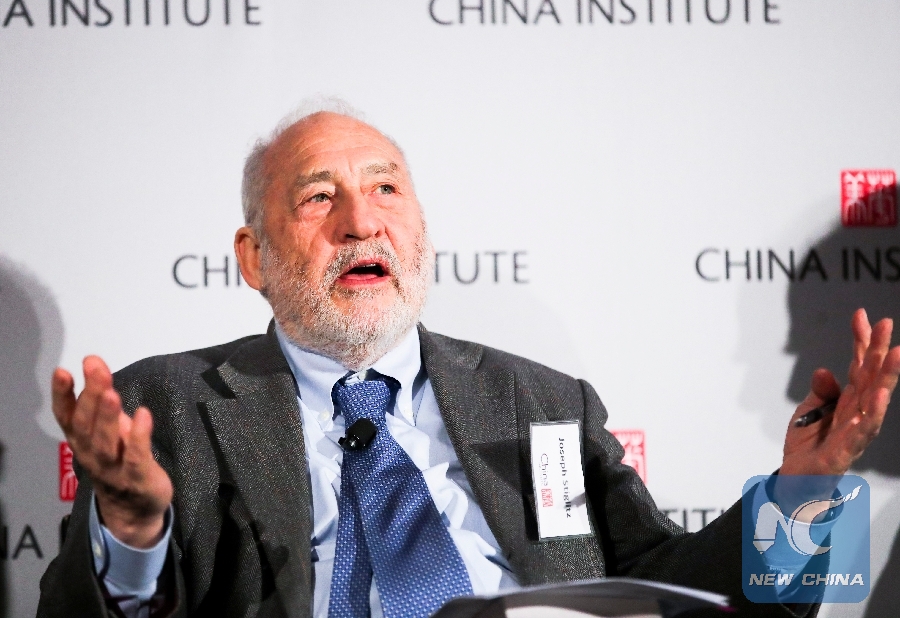
File Photo: Nobel Prize-winning American economist Joseph Stiglitz speaks at a panel discussion, part of the China Institute 2018 Executive Summit, "U.S.-China Business in the New World Order," in New York, the United States, on April 12, 2018. (Xinhua/Wang Ying)
NEW YORK, Sept. 18 (Xinhua) -- By withdrawing from multilateral trade agreements and unilaterally imposing tariffs on major trading partners, the United States is turning away from rule-based trade regime which has been crucial for global growth, said Nobel Prize Laureate Joseph Stiglitz.
Speaking on the economic consequences of recent U.S. actions at a forum held by Columbia University Center on Capitalism and Society, the U.S. economist noted that President Donald Trump has many misconceptions about trade.
While Trump said many international agreements were unfair to the United States, most of the agreements were unfair to developing countries in effect, said Stiglitz.
He indicated that with recent actions going against the rule of law, the United States would likely pay more but achieve less.
"Bargaining with asymmetric information is very costly. There are often breakdowns. And one of the reasons for the advantages of the rule of law is you don't have to spend all this energy in constantly renegotiating," said Stiglitz.
Talking about the Trump administration's latest announcement to impose additional tariffs on Chinese products, Stiglitz said the government overestimates the bargaining power of the United States and underestimates the others' resistance to the use of brute force.
"The opium wars of the 19th century are still very vivid in their (Chinese) minds and I would be surprised if they easily give in to this attempt to use brute force," he said.
The United States, disregarding overwhelming international and domestic opposition, announced the decision to impose additional 10-percent tariffs on 200 billion U.S. dollars worth of Chinese products from Sept. 24 and that it will take other escalating tariff measures.
China was forced to respond on Tuesday, announcing it will impose additional tariffs on U.S. products worth 60 billion U.S. dollars starting from Sept. 24.
When asked about his view on the discussion of intellectual property rights, which is at the center of U.S.-China trade frictions, Stiglitz said there is no theft of intellectual property in the area of artificial intelligence because China is "right at the forefront of it."
Regarding Chinese policy on foreign companies' access to the Chinese market through joint ventures, Stiglitz said: "It's totally understandable for a developing country to want to close the gap between themselves (and developed countries) and to try to absorb knowledge. That's not the same as stealing intellectual property."

